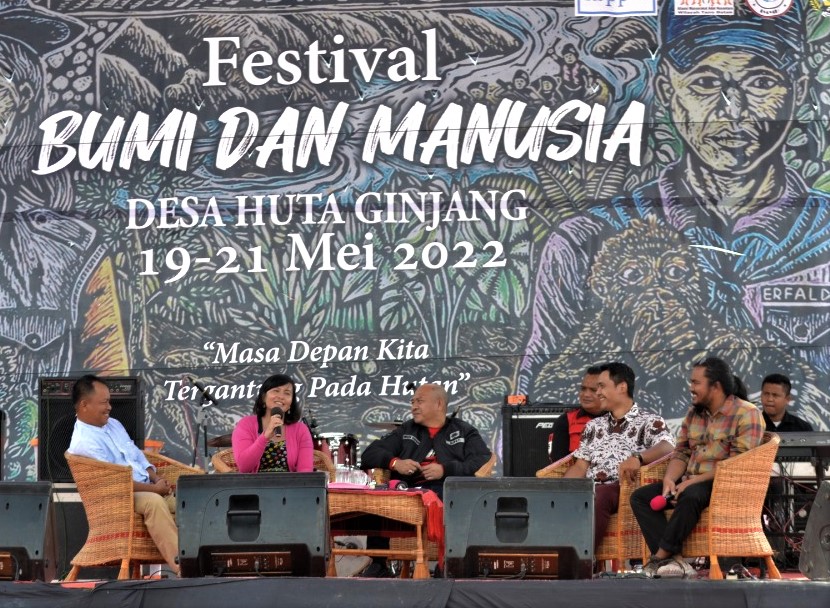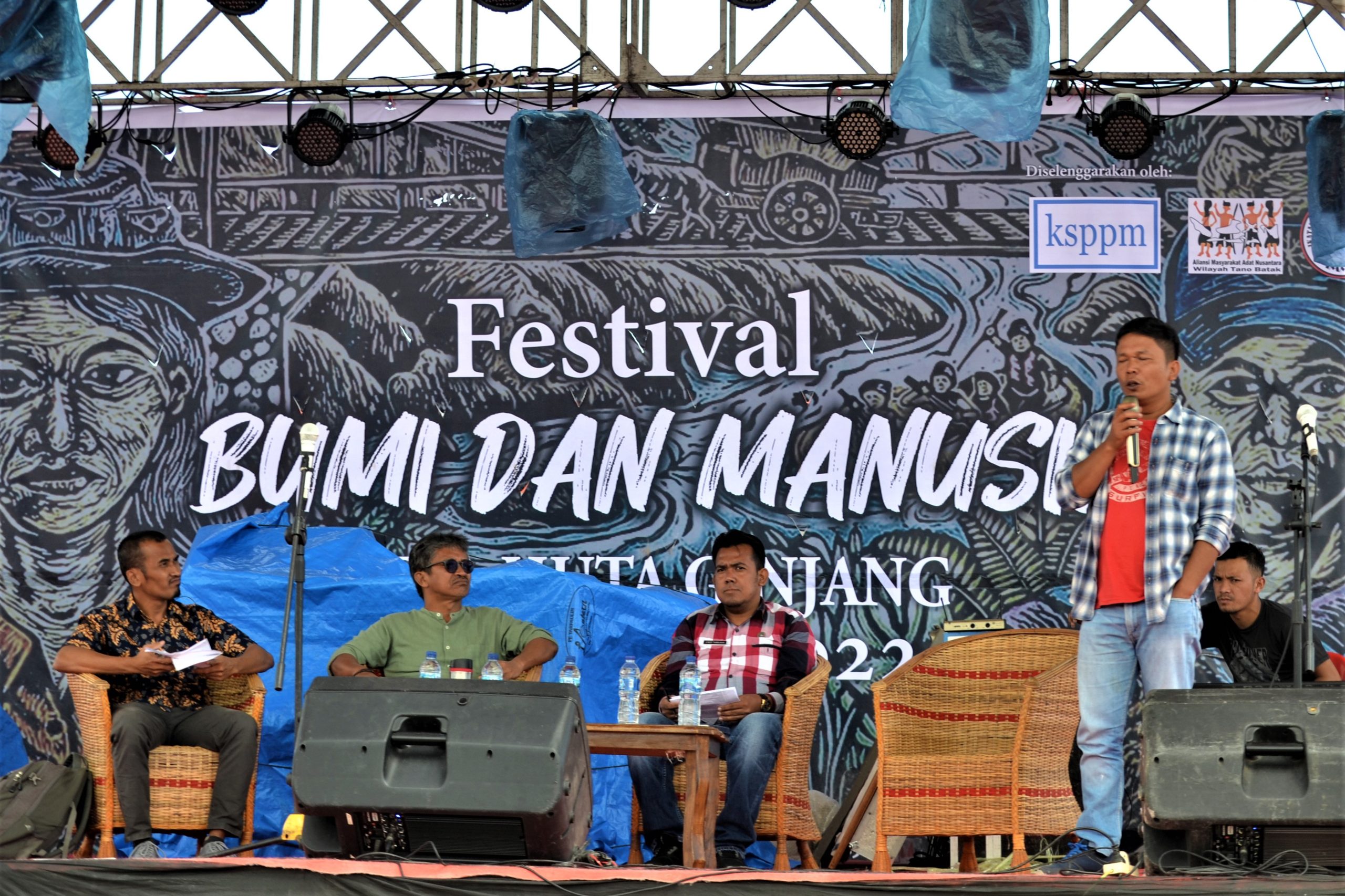On 6-12 March I, along with fellow KSPPM staff, Abriani Siahaan and two women from the community, Menti Pasaribu and Hotmiasi Sinaga, attended a Feminist Facilitator training. Other participants were women from 10 regions in Indonesia such as Papua, Maluku, Central Kalimantan, South Sulawesi, Purwokerto, Bali, Bengkulu, Kupang and Jakarta. This training strengthened my awareness that women in these various regions with diverse backgrounds and spheres of activity were experiencing the same problems. To this day, there is still neglect of the rights of women, especially poor women, by state and non-state actors.
Women face various problems in the patriarchal system that has been ingrained in daily life in the realm of the household, community and state. In daily life in the household, women experience a double burden and are undervalued in education and health. Within the state, women are often victims of inequitable access, opportunities and control over government policies. Women have not been fully involved in decision-making and approval of development projects that damage the environment and displace people’s livelihoods. This, for example, occurs in projects such as PT Toba Pulp Lestari (TPL) and programmes such as food estates, mining, reclamation, palm oil plantations, cement factories, all of which deprive women of access to and control over natural resources.

Women’s Resistance
In the Lake Toba region, women, especially from indigenous communities, have also spoken out and resisted the presence of PT TPL. Women have been the most affected by the seizure of thousands of hectares of land and the destruction of forests – including frankincense forests – by the company. The government, which has long neglected to fulfil women’s rights, has instead exacerbated poverty by granting licences to companies that destroy natural resources. Again, women’s opinions and local knowledge are ignored. The experience of cultural and structural oppression like this finally encouraged women to take a big role in resisting and voicing their rights.
The critical awareness of these women can be seen in various activities such as consolidation, discussion, and re-management of lands seized by the company. The successful struggle of a group of women in Sugapa in 1983 to reject PT Indorayon (now PT TPL) and reclaim their land became a symbol and motivation for struggle for women, especially in the Lake Toba region. Despite experiencing a lot of criminalisation, the struggle of the women in Sugapa is an example of success.
Women have indeed proven to be an important part of the struggles carried out by indigenous peoples in gaining recognition from the state, as happened in Pandumaan and Nagasaribu.

Kartini Day Momentum
The commemoration of Kartini Day on 21 April should not be interpreted as a celebration for women who wear kebaya with beautiful makeup, to then get likes and compliments on social media. This Kartini Day should be a moment of remembrance of the injustices experienced by women and a commemoration of the success of women dreaming of freedom and fighting for their rights. It should be a time to reflect on the situation of women who still experience discrimination, violence and injustice in households, communities and countries that are thick with patriarchal culture. Through her writings, we can see that Kartini, who lived in a culture and structure where women did not have access to education, had the spirit to fight and encourage women to move for their freedom.
Indeed, women are mobilising against injustice every day. Women from indigenous communities in the Lake Toba region daily fight against impoverishment, stand tall to fight for and protect their customary lands and forests. They also fight to maintain the local knowledge that they inherited as intellectual property with values and wisdom in maintaining the integrity of customary lands and forests. ** [Leorana]





